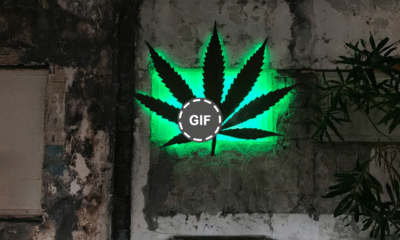The Netherlands launched a new phase in its cannabis regulation initiative this week, requiring participating coffee shops in various cities to sell only marijuana products sourced from government-authorized growers.
The expansion, first announced in 2022, aims to eliminate a long-standing legal loophole in Dutch policy, where selling cannabis was mostly tolerated but production remained illegal.
“Weed was sold here legally for 50 years, but the production was never legal. So it’s finally time to end that crazy, unexplainable situation and make it a legal professional sector,” Rick Bakker, commercial director at producer Hollandse Hoogtes, told The Associated Press.
Around 80 authorized coffee shops across 10 municipalities – with notably Amsterdam not part of the list – must now source cannabis exclusively from 10 government-licensed producers, ending their reliance on unregulated suppliers.
There are around 565 cannabis coffee shops throughout the country, with most still operating under the traditional tolerance policy rather than the new regulated system, according to StratCann.
Those 10 legal growers are:
- Almere
- Arnhem
- Breda
- Groningen
- Heerlen
- Hellevoetsluis
- Maastricht
- Nijmegen
- Tilburg
- Zaanstad
According to StratCann, the transition became mandatory for participating shops as of Monday, despite some operators expressing readiness concerns in March.
The regulated program includes cannabis flower, edibles and hash products. StratCann reported that by the end of last year, 70 of the 75 participating coffee shops had already begun selling regulated cannabis flower and hash, but were still permitted to offer unregulated products alongside them until an April 7 deadline.
Hollandse Hoogtes, located near the German border, produces about 200 kilograms of cannabis weekly with strict quality controls. Benjamin Selma, the company’s head grower, told the AP, “We do a full test, microbial, cannabinoid, terpene, as well as yeast and anaerobic bacteria, heavy metals as well. So it’s very, very controlled.”
Village Farms International (NASDAQ: VFF), operating through its Leli Holland subsidiary, is among the licensed cultivators. The company completed its first harvest in December and began deliveries in early 2025, according to a company news release.
The experiment will be evaluated after four years to assess impacts on crime, safety and public health, Dutch government officials have said.
“It is also a great opportunity to see how cooperation within the closed chain between legal growers, coffeeshop owners and all other authorities involved works,” Breda Mayor Paul Depla told the AP.
Despite pioneering cannabis decriminalization in the 1970s, the Netherlands has grown more conservative in recent years, compared to the federally-legal Canadian market and various U.S. state markets, which are now laden with more egalitarian hemp operators. Amsterdam has even been closing coffee shops and restricting cannabis use in some historic areas.
The Dutch legal market generated revenue of $64.1 million in 2023 and is expected to grow substantially, with market analysis firm Grand View Research projecting it to reach $337.5 million by 2030, representing a compound annual growth rate of 26.8% from 2024 to 2030.

 California Cannabis Updates1 year ago
California Cannabis Updates1 year ago
 Breaking News1 year ago
Breaking News1 year ago
 best list1 year ago
best list1 year ago
 Business12 months ago
Business12 months ago
 cbd1 year ago
cbd1 year ago
 Bay Smokes1 year ago
Bay Smokes1 year ago
 autoflower seeds12 months ago
autoflower seeds12 months ago
 cannabis brands12 months ago
cannabis brands12 months ago

















































